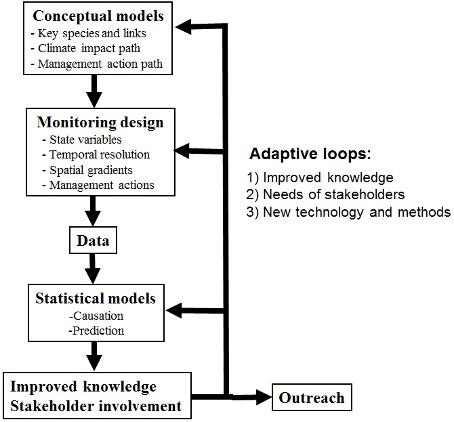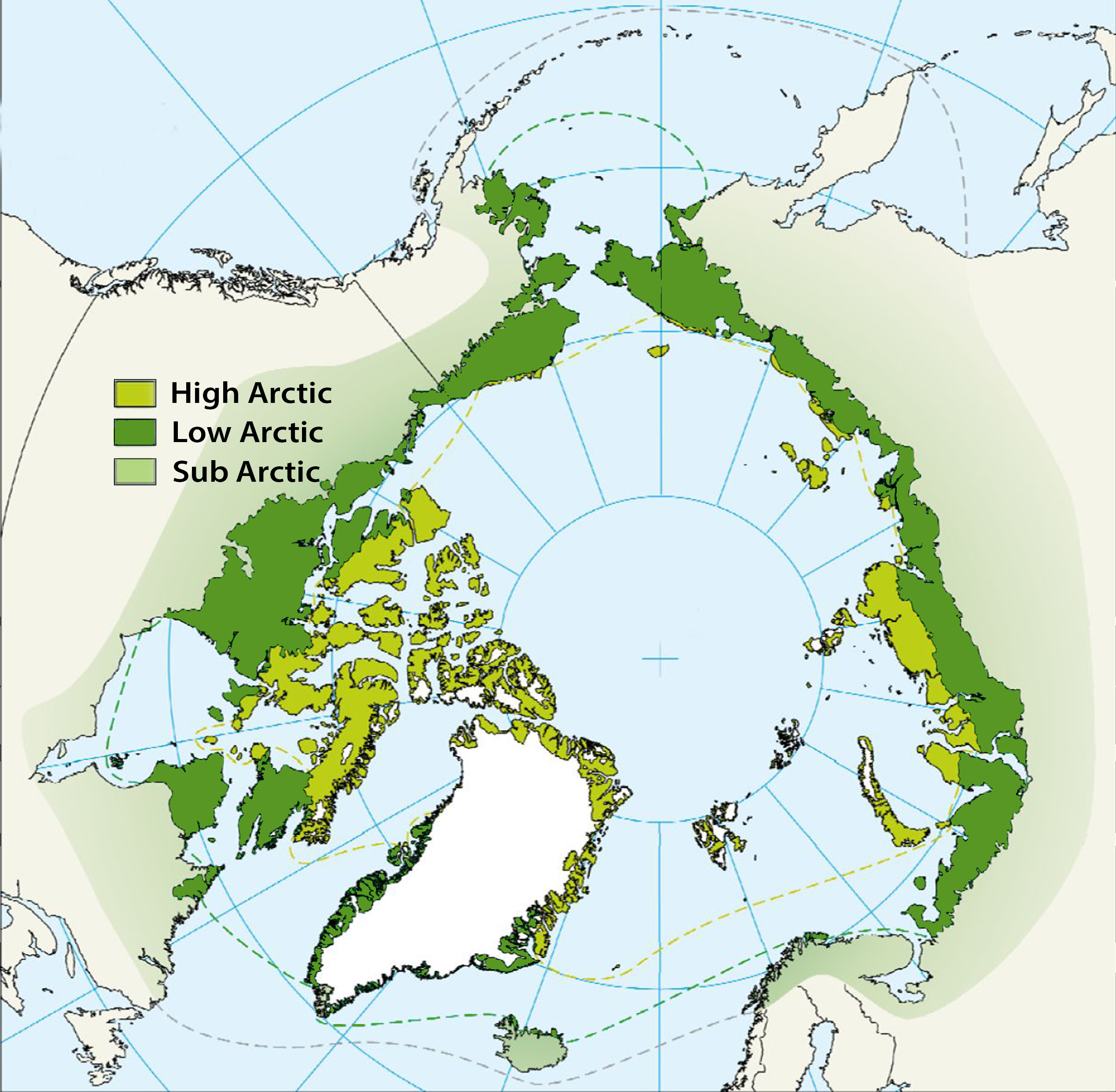COAT - Climate-ecological Observatory for Arctic Tundra

Long-term, ecosystem-based, and adaptive
COAT is a long-term, ecosystem-based and adaptive observation system. It aims to unravel how climate change impacts arctic tundra food webs, and to enable prudent science-based management. The expected impacts of climate and management are outlined in conceptual models of tundra food webs. These models guide the monitoring design and statistical models that estimate impacts and derive predictions based on the monitoring data (Figure 1). The approach accommodates three adaptive loops driven by (1) new knowledge, (2) needs of stakeholders and (3) new technologies/methods.

High and low arctic food webs
COAT targets two regions of the Norwegian Arctic - the terrestrial tundra ecosystems in High-arctic Svalbard and in Low-arctic Varanger (Figure 2). Within these food webs, research modules focus on subsets of strongly linked species (or functional groups) that have high climate sensitivity and key societal/ecological functions. The modules are centered around different vegetation strata (moss tundra, tundra-forest ecotone, tall-shrub tundra), herbivores (ptarmigan, ungulates, geese, rodents), and predators (arctic foxes).
See overview of COAT Modules here.
See COAT Publications here.
COAT is a cooperation between UiT, NINA (Norwegian Institute of Nature Research), NPI (Norwegian Polar Institute), MET (Norwegian Meterological Institute) and UNIS (University Centre in Svalbard).
COAT Members in our research group:
Kari Anne Bråthen, Hanna Böhner, Dorothee Ehrich, Isabell Eischeid, Michelle Etienne, Vera Helene Hausner, John-André Henden, Stijn Hofhuis, Rolf Anker Ims, Eivind Flittie Kleiven, Jan Erik Knutsen, Ole Petter Laksforsmo Vindstad, Jarad Mellard, Julia Mikhailova, Eeva Marjatta Soininen, Leif Einar Støvern, Nigel Yoccoz
COAT members at other institutions/ elsewhere at UiT:
Other:
Leif Egil Loe (NMBU)
Jesper Madsen (University of Aarhus)
Helen Anderson (University of Aberdeen)
Rene van der Wal (Swedish University of Agricultural Sciences)
Ingibjörg Svala Jónsdóttir (UNIS, University of Iceland)